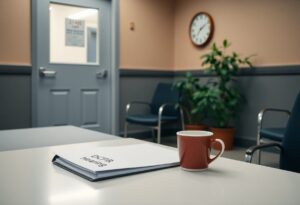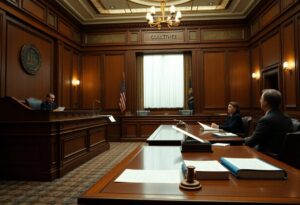DCF Defense Lawyer: Navigating a Massachusetts DCF Investigation

Parents like Myra and George facing DCF investigations often feel lost and overwhelmed. They seek clear guidance to understand their rights and the complex investigation process. Many don’t realize they are not alone; others have faced similar challenges and found ways to overcome them. Sharing experiences and gaining knowledge can empower families to advocate effectively for themselves and their children. Support networks and experienced legal counsel play a critical role in helping parents navigate this difficult journey and protect their family’s future.
The Massachusetts Department of Children and Families (DCF) is charged with protecting children from abuse and neglect while striving to keep families together when possible. DCF’s mission balances child safety with maintaining family bonds through prevention and intervention. The agency works collaboratively with communities and support networks to promote long-term family well-being. Beyond enforcement, DCF prioritizes creating nurturing environments for children and supporting families throughout the Commonwealth. Families must understand their rights and the regulations governing DCF investigations (110 Code of Massachusetts Regulations). Being informed empowers parents to advocate effectively and helps ensure the best possible outcomes for their children and families.
What Happens During a DCF Investigation? Insights from a DCF Defense Lawyer

The DCF investigation begins with a 51A report filed by anyone suspecting child abuse or neglect, including mandated reporters like teachers or doctors, neighbors, or anonymous sources. Upon receiving a report, DCF immediately screens it to determine if it meets their criteria for abuse or neglect and assesses the child’s safety. This screening involves gathering information from the reporter, checking family history, and consulting professionals involved with the child. Not all reports lead to investigations; if the report lacks evidence or falls outside DCF’s jurisdiction, it may be screened out. Emergency reports receive priority and are acted on swiftly, while non-emergency cases follow within a set timeframe.
If the report is screened in, DCF assigns a social worker to investigate. This includes home visits, interviews with the child, parents, and others, and reviewing relevant documents like medical and school records. The investigation aims to assess the child’s safety and family environment thoroughly. Cooperation with DCF is important, but families have rights, including legal representation during interviews. Entry to the home can be refused without a warrant unless there is an immediate safety concern. The investigation seeks to balance protecting the child and supporting the family.
- Case Closure: If DCF determines the child is safe and well-cared for, the case may be closed without further intervention.
- Ongoing Monitoring: In certain cases, DCF continues monitoring and providing services until they are satisfied the child’s safety is no longer a concern.
- Legal Action: If serious safety concerns persist and efforts to work with the family are unsuccessful, DCF may file a care and protection petition in court, seeking temporary or permanent custody of the child.
- Reunification: If a child was removed from the home, the goal is often to reunite the family once parents have addressed concerns and demonstrated their ability to provide a safe environment.
Ensuring the Best Outcome with a DCF Defense Lawyer’s Support

Facing a Massachusetts DCF investigation is challenging and emotional. Cooperate with DCF, know your rights, and stay engaged. It’s wise to seek legal help from experienced attorneys like those at the Law Office of Kevin Seaver, who can protect your rights and guide you through the process. Remember, DCF’s goal is child safety while supporting families. Understanding your rights and the investigation process empowers you to navigate this difficult time with confidence.






